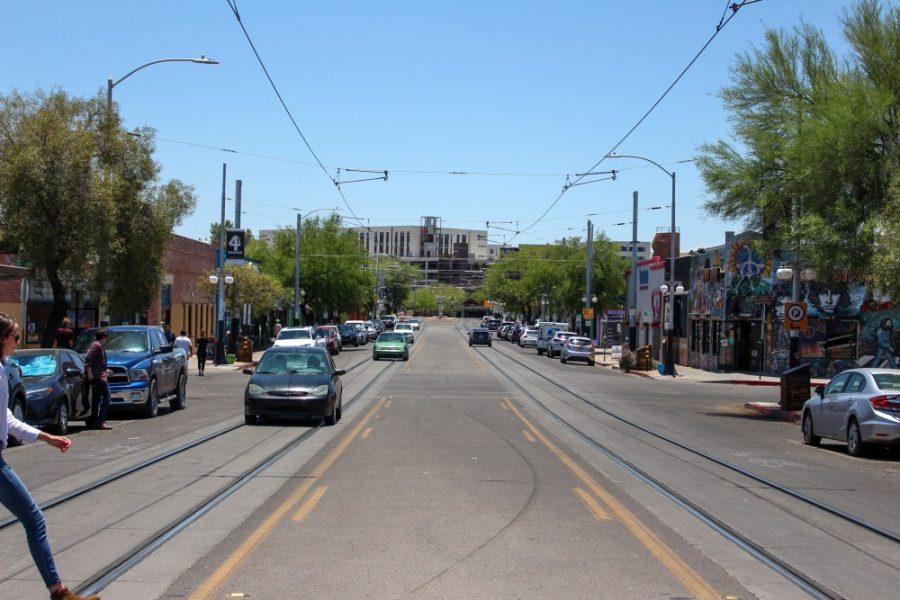The City of Tucson Mayor and Council have allocated over $11.6 million to struggling small businesses during the course of the COVID-19 pandemic.
Congress passed the Coronavirus Aid, Relief and Economic Security Act, which allowed for each state to receive a minimum of $1.25 billion. Tucson’s population made the city eligible for a direct allocation of $95.6 million, with $11.6 million going directly to small business and nonprofit continuity grants.
RELATED: Around the Corner: Celestial Rites calls upon its fighting spirit during COVID-19 pandemic
Barbra Coffee is the Director of Economic Initiatives for the City of Tucson and helped lead weekly webinars for small business owners to guide them through the financial difficulties of the pandemic.
“Part of the instructions from the federal government was to utilize those funds to support small businesses during this challenging time,” Coffee said. “We quickly began to look at what we can do to support businesses that were impacted by the forced closures and changes in business hours.”
According to Coffee, many of the smaller and more vulnerable businesses were unable to receive funding as quickly as others that already had banking relationships in Tucson. Mayor Regina Romero and the Tucson City Council worked to make sure these businesses were still getting the help they needed to remain open.
“We created some eligibility criteria to give preference to those businesses that were women and minority-owned and businesses that were owned by veterans or disabled persons,” Coffee said. “With that we were able to help folks access their share to help them through this really trying time where businesses were losing 70 to 80 percent of their revenue almost overnight.”
Steve Kozachik is the Ward 6 council member and has worked with the rest of the Tucson City Council over the course of the pandemic to allocate funds to small businesses and nonprofit organizations.
“Anywhere you see outdoor seating that’s out on the sidewalks, that’s as a result of the easing of the regulations and also putting some cash into their pocket to help buy furniture, because it’s not like they had that in storage just waiting to be put outdoors,” Kozachik said.
Tucson’s businesses had to scramble in order to quickly adapt to the pandemic’s new rules. Outdoor seating and to-go orders were challenging hurdles at first, but many business owners have made it work over time.
Monique Vallery is the creative director and COO of the Fourth Avenue Merchants Association and has worked tirelessly to provide one-on-one support for the small businesses on Fourth Avenue.
“A lot of them had to shift business models, but they’re creative and figuring it out,” Vallery said. “Some things are really working and some aren’t, but we’re just all going to keep trying.”
Mayor and Council were able to allocate another $3 million to small businesses in December from the original $95 million the city received in March.
“I can think of at least a dozen times right off the bat when I had the honor of safely handing somebody a check and they said, ‘You just kept us open,’” Vallery said. “So we know that this certainly helps, we know it made a difference.”
For many small business owners in the community, receiving that $5,000 check meant more to them than others could even imagine. Not only could they keep their doors open and continue providing for their families, but they could also remain a pillar in the community for those adamant about shopping local.
“Shop local and pay attention to independently-owned and operated enterprises in your community because those dollars truly stay local,” Coffee said. “If you have a choice of eating at McDonald’s or eating at Gentle Ben’s, choose local.”
Although the option of shopping small isn’t always available, it’s still important to remember to support the local community in any way possible.
“Small businesses are the number one generator of economic activity in our city,” Kozachik said. “They are our economic engine.”
Without small businesses in the community, the local government system couldn’t operate in the way it does today. Corporations and big-box stores may rule the stock market, but small businesses make the local community run smoothly.
“They are generating sales taxes that fund our budget, so we’re all in this together and that’s why it’s so important for us to make sure that they’re healthy,” Kozachik said.
Follow Sydney Jones on Twitter









